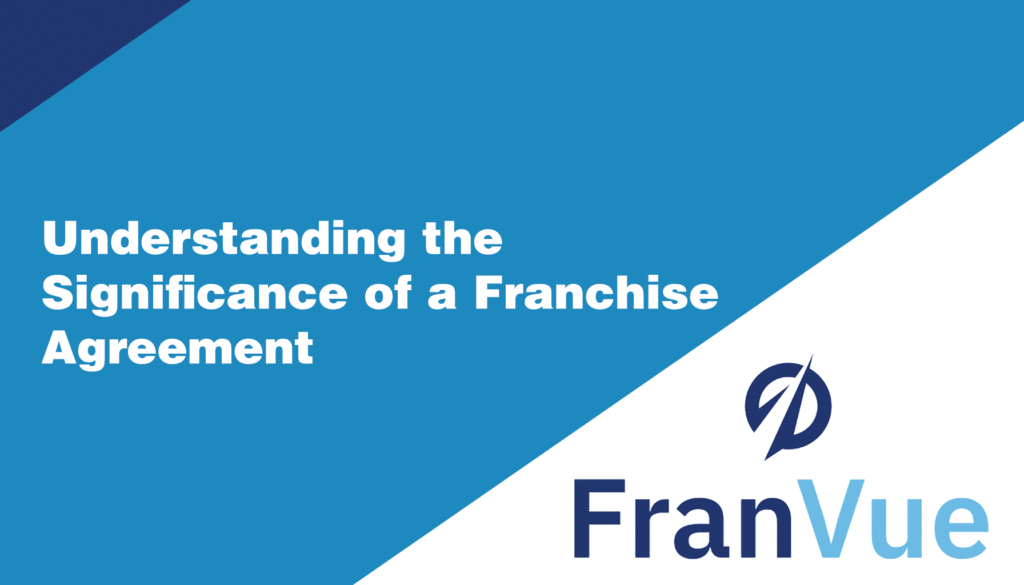A franchise agreement stands as the pivotal legal document that establishes a franchisor-franchisee relationship. This contractual agreement grants the franchisee the legal authorization to establish and operate a franchised business, where they gain access to the franchisor’s trademarks, trade dress, business systems, operational guidelines, and supply sources, enabling them to offer and sell the products and/or services specified by the franchisor. The Franchise Agreement is legally required to be disclosed as an exhibit within a franchisor’s Franchise Disclosure Document, a document that must be presented to prospective franchisees before any franchise offerings or sales can take place.
Crucial Insights for Franchisors Regarding the Franchise Agreement As a franchisor, the franchise agreement serves as the primary and most significant legal instrument governing your relationship with franchisees. Within this agreement, you bestow upon your franchisees the legal rights to establish and develop their franchised outlets, while they, in return, commit to establishing and maintaining their franchised operations in strict accordance with your system’s requirements and paying ongoing fees to you.
Critical Considerations for Franchisees Regarding the Franchise Agreement For franchisees or potential franchisees, the franchise agreement stands as the cornerstone of your franchise investment. Any promises made by the franchisor that you rely on must be explicitly outlined in the franchise agreement or an associated amendment. To explore further details about buying a franchise and conducting due diligence to assess your investment, you can click here.
Typical Provisions Found in a Franchise Agreement Within a franchise agreement, several substantive legal rights and responsibilities are established, including:
- The Grant of Franchise Rights and Term: This provision grants the franchisee the rights to establish and operate a franchised location or locations, encompassing the use of the franchisor’s trademarks, trade dress, and business systems. Typically, franchise rights are granted for a period of 10 years, though this duration may vary depending on factors like the business type, the franchisee’s initial investment, and the time needed to generate a sufficient return on the franchisee’s initial investment.
- Franchisee’s Development Obligations: This section outlines the franchisee’s responsibility to establish one or more franchised locations within a specified timeframe, along with the date by which they must commence daily business operations.
- Initial and On-Going Training: The franchise agreement stipulates the initial training provided by the franchisor before opening, as well as any ongoing training that may be required or offered by the franchisor.
- Territorial Rights: This aspect clarifies whether the franchisee is granted territorial protection, wherein the franchisor refrains from granting competing franchises in the same area. Typically, franchisees are assigned an operating territory within which they are both required and restricted to conduct their franchise business. The franchise agreement outlines where the franchisee can operate, who they can sell products or services to, and any territorial protection they may receive.
- Operating Procedures: The franchise agreement mandates that the franchisee adheres to the systems and procedures established by the franchisor. It requires the franchisee to offer and sell only those products and services authorized by the franchisor and to follow the operating guidelines detailed in the franchisor’s confidential operations manual.
- Initial Fees: This section defines the initial fees payable by the franchisee to the franchisor. The most common initial fee is the initial franchise fee, which is the primary fee paid at the time of signing the franchise agreement. Other initial fees may encompass upfront software license fees and initial inventory requirements and purchases.
- On-Going Fees: The franchise agreement outlines the recurring fees that the franchisee must remit to the franchisor. The most prevalent ongoing fee is the royalty fee, typically charged on a monthly or weekly basis. Royalty fees are usually calculated based on a fixed percentage (the royalty rate) of the franchisee’s ongoing monthly or weekly gross sales. Nevertheless, alternative royalty structures exist, where franchisees pay a royalty based on a fixed dollar amount or another structure specified in the franchise agreement.
- Marketing Fees and Marketing Obligations: This provision mandates whether the franchisee must contribute to marketing fees established by the franchisor. Commonly referred to as a “brand development fund,” franchisees may be required to make contributions. The franchise agreement outlines the obligations concerning the franchisee’s local marketing efforts.
- Restrictive Covenants and Non-Competes: To safeguard the confidentiality of the franchise system and prevent franchisees from establishing competing businesses, the franchise agreement includes in-term and post-termination restrictive covenants. During the term of the franchise agreement, in-term restrictive covenants typically prohibit the franchisee from establishing, operating, or participating in any competing business. Post-termination restrictive covenants come into effect when the franchise agreement is terminated and usually prevent the franchisee from engaging in any competing business for a specific duration after the termination date.
- Legal Rights and Jurisdiction: The franchise agreement specifies the state law (typically the law of the state where the franchisor’s corporate headquarters are located) governing the interpretation of the agreement. Additionally, it defines the state courts, federal courts, or arbitrating entity vested with exclusive jurisdiction in the event of a dispute between the franchisor and the franchisee.
Negotiating Franchise Agreements A frequently asked question pertains to whether franchise agreements are negotiable. The answer is that they are negotiable, provided that the negotiated changes are requested by the franchisee to secure more favorable terms and rights, rather than less favorable ones. Although franchise agreements are typically subject to negotiation and can often undergo modifications, these alterations are generally limited in scope. Franchisors maintain the necessity of ensuring uniformity within their franchise systems and should never negotiate or modify structural elements such as initial franchise fees and royalty obligations.


